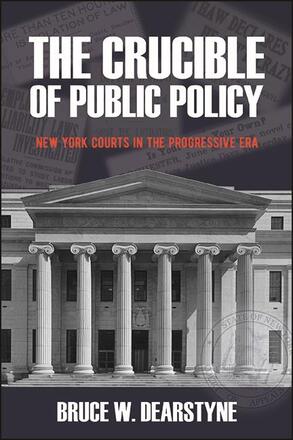
The Crucible of Public Policy
New York Courts in the Progressive Era
Alternative formats available from:
Relates the dramatic role of New York courts in shaping public policy on key reform legislation in the progressive era.
Description
The Crucible of Public Policy: New York Courts in the Progressive Era relates the dramatic story of New York State courts, particularly the Court of Appeals, in deciding on the constitutionality of key state statutes in the progressive era. The Court of Appeals, second in importance only to the United States Supreme Court, made groundbreaking decisions on the constitutional validity of laws relating to privacy, personal liberty, state regulation of business, women workers' hours, compensation for on-the-job injuries, public health, and other vital areas. In the process, the Court became a crucible of sorts—a place where complex public policy issues of the day were argued and decided. These decisions set precedents that continue to influence contemporary debates. The book puts people—those who made the laws, were impacted by them, supported or opposed them in public forums, and the courts, attorneys, and judges—at the center of the story. Author Bruce W. Dearstyne presents new material previously unused by scholars, reflecting extensive research in the Court of Appeals' archival records.
Bruce W. Dearstyne is a historian specializing in New York state history. He is the author of several books, including The Spirit of New York, Second Edition, also published by SUNY Press.
Reviews
"During the Progressive Era, the New York Court of Appeals was the greatest common law court of last resort in the Nation, and ceded pride of place only to the US Supreme Court as an arbiter of constitutional questions. Bruce W. Dearstyne shows us why in this insightful and lively book. The Court grappled with the great issues of the day, ranging from the scope of the administrative state, the right to privacy, women’s rights, and the rights of the individual when government seeks to combat communicable disease. Dearstyne provides cameos of the Court’s leaders and the historical context in which they rendered their verdicts. Ultimately, he teaches us that nothing is new under the sun." — Henry M. Greenberg, past president of the New York State Bar Association and a founding member of the Historical Society of the New York Courts.